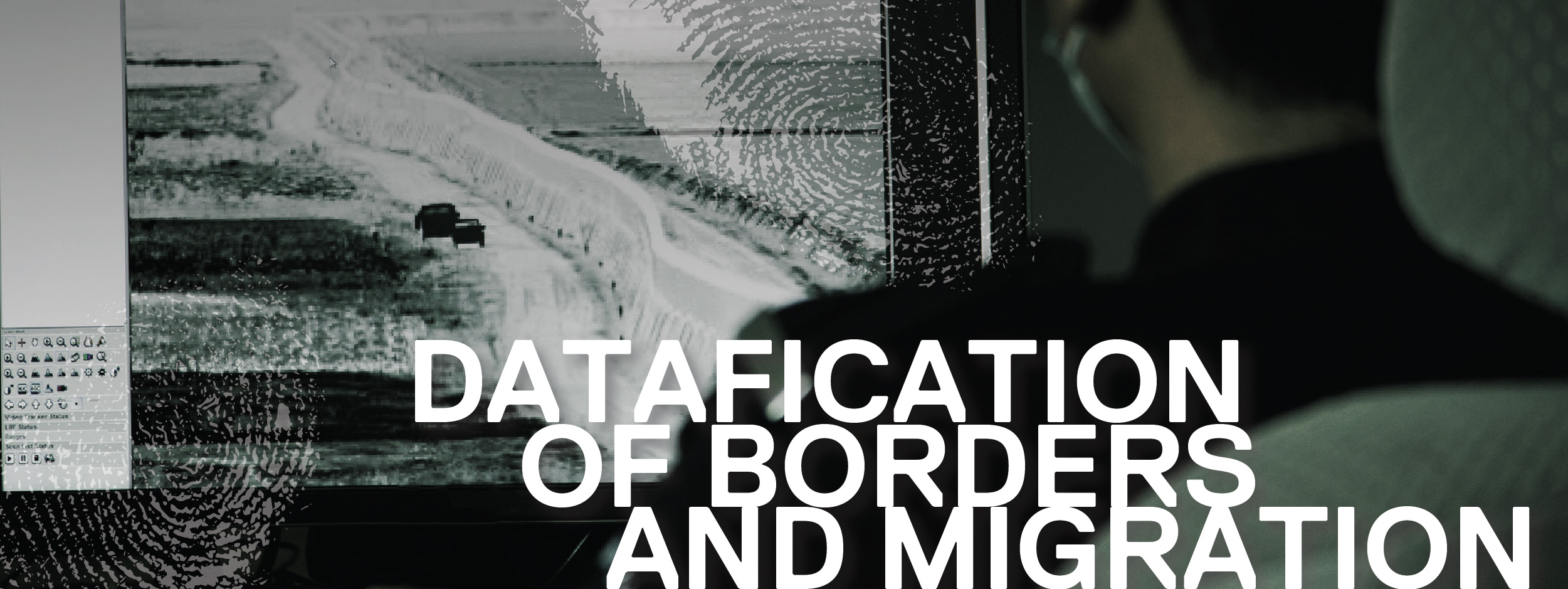Datafication of Borders and Migration
- Date
- May 25, 2023
- Time
- 9:30 AM EDT - 4:00 PM EDT
- Location
- Hybrid (In-person at CERC Migration office / online via Zoom)

Co-convened by Anna Triandafyllidou, CERC Migration, Toronto Metropolitan University, Koen Leurs, Utrecht University, Kaarina Nikunen, Tampere University, Younes Ahouga, CERC Migration, Toronto Metropolitan University, and Lucia Nalbandian, CERC Migration, Toronto Metropolitan University and University of Toronto.
Digital technologies and datafied systems are increasingly used to surveil, control and manage migration, shifting the balance in the humanitarianism-securitization nexus. New automated systems from facial recognition to language detection have profoundly intensified and changed migration and border policies. Data driven technologies have rendered borders ubiquitous, multi-layered and mundane: the outside border control has become increasingly mobile, now travelling with and tracking migrated bodies after border crossings.
Datafication is often framed as a phenomenon that concerns everyone: in a highly networked digital world, datafication cannot be escaped. However, datafication does not treat everyone in the same way. Critical data studies have highlighted that automated social sorting is often based on categorizations and assumptions that echo existing social biases and historical power structures, as well as pervasive and accumulative surveillance of the already marginalized. While at the same time, data driven technologies also provide systems that support new forms of resistance and activism for people who are seeking asylum or who are on the move.
This workshop brought together scholars from different disciplines to introduce their research on digital technologies and datafication in migration and to discuss its ambivalent and contradictory role for migrants compared to refugees, as well as the unsettling consequences of the use of datafication in bordering and policymaking. This workshop was organized in collaboration with CERC Migration TMU; Intimacy in Data Driven Culture (IDA) project, Tampere University; the Co-Designing a Fair Digital Asylum Research Project; and the Digital Migration Special Inter Group, Utrecht University.
| Program | |
| 9-9:30 AM EDT | Welcome reception |
| 9:30-9:40 AM EDT | Welcome remarks from Anna Triandafyllidou, Koen Leurs and Kaarina Nikunen |
| 9:40 AM-12 PM EDT | Datafication and borders Chair: Younes Ahouga, CERC Migration, Toronto Metropolitan University
|
| 12- 1 PM EDT | Lunch Break |
| 1-2 PM EDT | The history of datafication at the borders Chair: Koen Leurs, Utrecht University
|
2:30-4 PM EDT |
Datafication and the agency of refugees and migrants Chair: Kaarina Nikunen, Tampere University
|